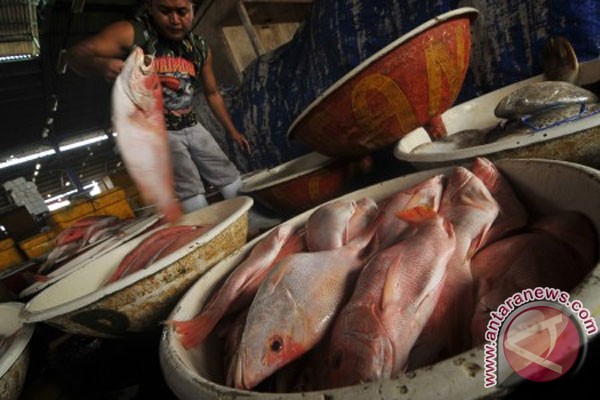 ment is facilitating a marine and fisheries product certification program for developing countries through the world fisheries conference held by The Marine Stewardship Council (MSC) in Nusa Dua, Bali, on Tuesday.
ment is facilitating a marine and fisheries product certification program for developing countries through the world fisheries conference held by The Marine Stewardship Council (MSC) in Nusa Dua, Bali, on Tuesday."There are ten developing countries participating in this conference," said Director General of Processing and Marketing of the Ministry of Maritime and Fisheries Affairs Saut P Hutagalung in Nusa Dua on Tuesday.
As an institution of international fisheries which gives ecolabel certification in developing countries, Saut said that MSC ensures that all fish which go on sale were caught without damaging the environment.
"Indonesia, as one of the leading fishing nations in the world, has great interest in certification which supports environmental sustainability," he said.
Saut said that the ecolabel certification is a requirement for getting entry into the export market.
"Ecolabel certification is also part of the governments policies which lead to sustainable fisheries management," he said.
The Indonesian government is currently working on getting MSC certification for tuna, crab, red snapper and grouper, which are the main fish exports.
In 2013, the value of fish exports reached US$4.2 billion, with the main export markets being the EU countries, Japan and the United States.
Of the total amount, tuna exports contributed $764 million and crab exports contributed $359 million. While red snapper exports brought in $11.7 million, grouper exports contributed $29 million.
"The marine products are in the process of obtaining MSC certification," Saut said.
Meanwhile, MSC Director David Agnew explained that the certification will provide added value to fishery products in the global market.
"The global markets need certification for the sake of building a long-term and sustainable fisheries sector. Currently, there are 220 species of fish in the world which are included in this program," he said.
According to Agnew, these requirements are not specified by the authorities but by the global market, such as in North America, South America, North Africa and Japan.





